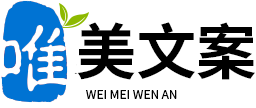作文英语初三
Title: Tips for Optimizing Content on Search Engines
Introduction: With the increasing importance of digital marketing, search engine optimization (SEO) has become a vital strategy for businesses to improve their online visibility. To rank high in search engine results, it is crucial to follow certain guidelines and techniques. This article will provide some effective tips for optimizing content on search engines.
Keyword Research: The first step in optimizing content is thorough keyword research. Identify the most relevant and popular keywords related to your topic. Utilize online tools like Google Keyword Planner to find suitable keywords with moderate to high search volumes. Incorporate these keywords naturally throughout your content to increase its visibility on search engines.
Quality Content: Creating valuable and engaging content is essential for SEO. Search engines prioritize high-quality content that offers useful information to users. Ensure your content is well-written, informative, and error-free. Focus on providing solutions to users' queries and delivering a positive user experience.
Title Tags and Meta Descriptions: Optimize your title tags and meta descriptions to improve your content's visibility on search engines. Title tags should be concise, descriptive, and include the targeted keywords. Meta descriptions should provide a brief summary of the content, enticing users to click on your website's link in the search results.
Internal and External Linking: Incorporate internal and external links within your content. Internal linking refers to linking relevant pages within your website, which helps search engines understand the structure of your website and improves user navigation. External linking to reputable and authoritative sources adds credibility to your content.
Mobile-Friendly Design: In today's mobile-dominated world, having a mobile-friendly website is crucial for SEO. Ensure your website is responsive and adapts well to different screen sizes. Mobile-friendly websites rank higher in search engine results, as they offer a better user experience for mobile users.
Image Optimization: Optimize your images by using descriptive file names and alt tags that include relevant keywords. Compress the images to reduce their file size, ensuring faster loading times. Additionally, include captions or descriptions for images to enhance their search engine visibility.
Social Media Integration: Integrate social media sharing buttons into your content to encourage readers to share it on various platforms. Social media signals, such as likes, shares, and comments, can positively impact your search engine rankings. Engage with your audience on social media to boost your online presence.
Conclusion: Efficiently optimizing your content for search engines is crucial to increase your website's visibility and attract more organic traffic. By conducting proper keyword research, creating quality content, optimizing title tags and meta descriptions, using internal and external linking, ensuring a mobile-friendly design, optimizing images, and integrating social media, you can significantly improve your website's SEO performance. Remember to stay updated with the latest SEO trends and algorithms to maintain your website's ranking on search engines.
